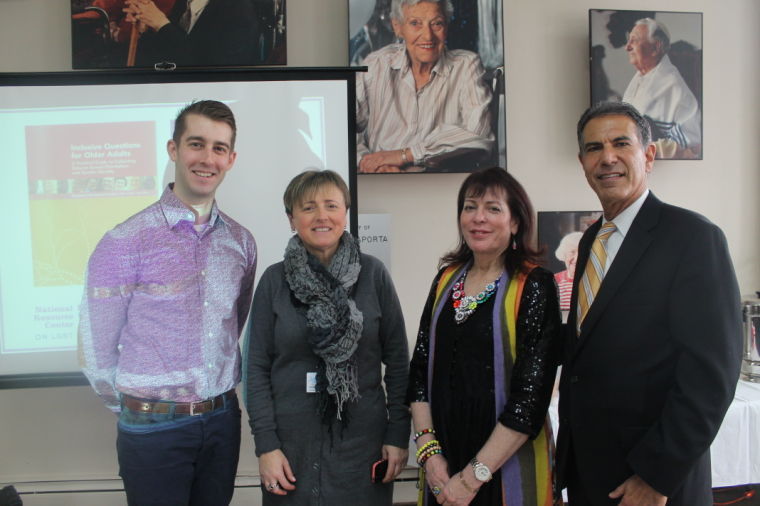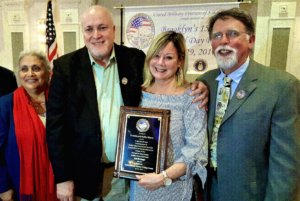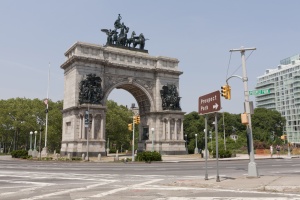The struggles gay, lesbian, bisexual and transgender seniors endure and how their quality of life can be improved through understanding and empathy was the subject as members of the Senior Umbrella Network (SUN-B) met at the Sephardic Nursing and Rehabilitation Center in Bensonhurst on Tuesday, February 18.
Often times, peoples hearts are in the right places and they want to make a difference but maybe theyre afraid to be insensitive, said one of the mornings guest speakers, Tim Johnston, manager of education and training for SAGE National Resource Center on LGBT Aging, the country’s first center geared towards improving the quality of services for the LGBT. My goal is to give basic resources to give you what you need to follow through on those good intentions. Johnstons advice included discussing and familiarizing yourself with proper terminology as well as opening ones mind on how to think about family. Its important when youre dealing with all clients to give them the space to describe who their family of choice is rather than sitting down and asking if they have kids, he stressed.Johnston also described how to determine what to call a particular LGBT person. The rule of thumb is to always refer to the person as they wish to be referred to, he said. Just ask what their preferred pronouns are. Dont assume.Later on during the meeting, Johnston handed out pamphlets, which included a timeline that portrayed the long struggles of the LGBT community and why older adults are reluctant about visiting medical centers.Most people dont realize that until 1973, you could be institutionalized against your will for being gay, said Johnston. Up until that point, if someone figured out that you were gay, you not only risked losing your job, family, kids, but you could literally be put in an institution and forced to receive therapy.This discriminatory history created a fear of hospitals for LGBT individuals. LGBT older adults have been found to be five times less likely to seek health and social services than their heterosexual or non-transgender peers, he continued. Johnston also referred to a study done several years ago in which 67 percent of doctors and medical students reported that LGBT older patients were either denied care outright or felt that they received substandard care because they were LBGT.Lawyer Ronald Fatoullah of Fatoullah & Associates discussed the injustices that still exist with respect to people who are LGBT. This is the land of the free and the home of the brave. We are brave people but were not very free in some areas. Were still not free enough, he stated.One of Fatoullahs subjects was the Defense of Marriage Act (DOMA), a law enacted by the United States in 1996 that allowed states to refuse to recognize same-sex marriages granted under the laws of other states. Why would the federal government and the state even care what consenting adults do behind closed doors? Why would they dictate whether these people could get married? he asked.Its easy to forget that many LGBT older adults had been kicked out of their family, added Johnston. When they come out, theyre told they have to get out. You cant live here any longer.To learn more about the National Resource Center, visit www.lgbtagingcenter.com. To become a member of SUN-B and attend future meetings, contact SUN-B President Vicki Ellner at 516-455-9612 or visit www.sunb.org.LGBT older adults the focus of SUN-B meeting

Tim Johnston, Angela Villanella, Vicki Ellner and Ronald Fatoullah.
 Generally Speaking: Bay Ridge resident named Brooklyn surrogate, Memorial Day Parade-ers honored
Generally Speaking: Bay Ridge resident named Brooklyn surrogate, Memorial Day Parade-ers honored  Captain America celebrates 75th birthday with statue in Prospect Park
Captain America celebrates 75th birthday with statue in Prospect Park